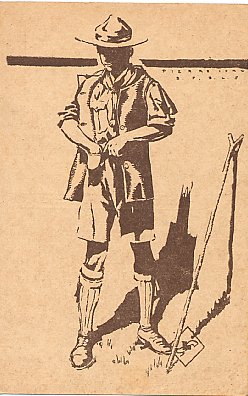| |
 |
|
Roland
Erasmus Philipps was the second son of Lord St. David and
his wife, Leonora Gerstenberg. He was born at 24 Queen Anne's
Gate, Westminster on February 27, 1890 and educated at Winchester
and New College, Oxford were he took his bachelor's degree
in 1911, taking honours in Jurisprudence. Like his father,
he studied law rather as an introduction to politics than
as the profession, which he meant to adopt. Most of the
great public schools supported settlements in the poorer
quarters of the industrial centers, so as to enable boys
of the wealthier classes to take an interest in, and gain
personal contact with, lads less fortunately placed. This
experience was of great value, as it helped them to appreciate
with sympathy and understanding the great social problems,
which they would be called upon to solve when they assumed
the responsibilities of citizenship. Roland Philipps was
immediately attracted by this settlement work, for it was
closely linked with the social and philanthropic activities
of his mother in which he was already a willing helper.
It was a typical upper class upbringing and those who knew
him would not have been surprised if Roland had opted for
a political career. His opinions were those of the radical
wing of the Liberal Party and he went so far as to become
prospective parliamentary candidate for South Glamorgan.
|
But
in 1911 a chance encounter changed the direction of his life.
He was working in Liverpool and one weekend on a country walk
he met some members of the 4th Blundellsands Troop, discovered
in conversation that they were short of leaders (times haven't
changed much) and offered to help. At the age of 21 Roland Philipps
had found the work that was to dominate his tragically short life.
To
appreciate Roland fully, it is essential to understand his deep
Christian faith. Prayer was the ground on which he based his actions
and he saw in scouting a way of service to young people that fulfilled
the faith he practised. This is not to say he was narrow in his
Anglicanism -but he firmly believed that a boy lacked something
of vital importance if he did not have a religious base to his
life and, in an area like the East End, that was likely to embrace
several Christian traditions, Judaism, Islam, or any number of
other strains.
|

